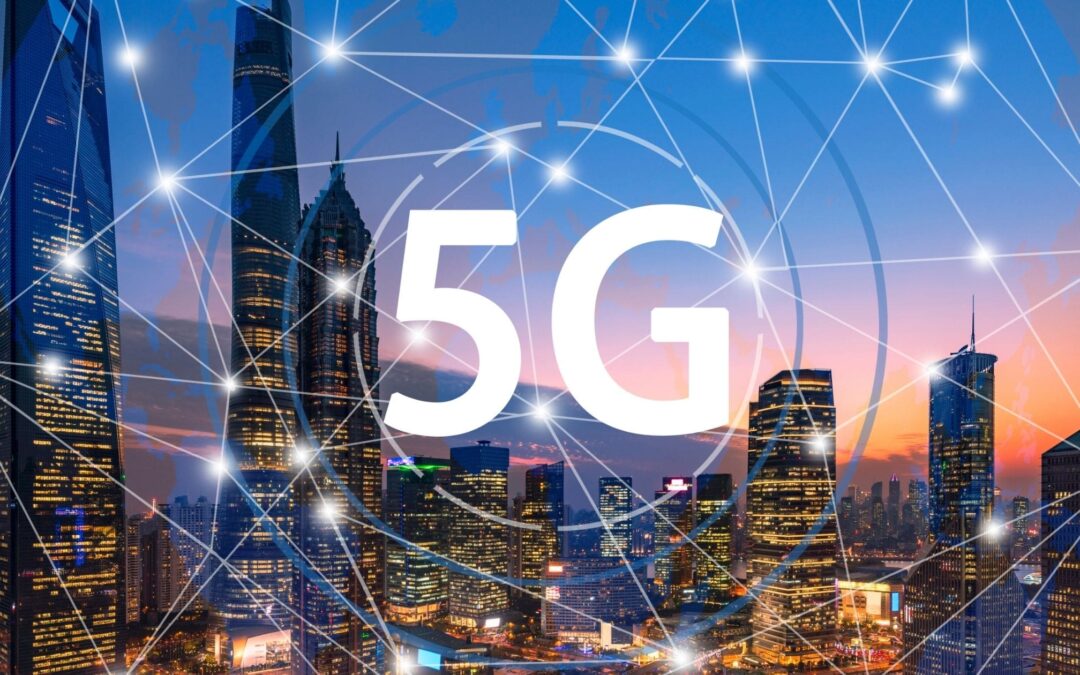As the long, laborious rollout of 5G continues across the U.S., business leaders are contemplating what that might mean. And the expectation is that it will have wide-ranging implications across all sectors. Manufacturing, enabled by all manner of Internet of Things gadgetry, will become more efficient. Healthcare will become more accessible. Operations will improve, no matter the field; waste will be minimized and stakeholders of every stripe will benefit.
Feel free to wonder when it will be widely available. While Verizon continues to lead the other major carriers – AT&T and T-Mobile/Sprint – in the rollout race, Statista reported in mid-November 2022 that 5G was available in 296 U.S. cities, second-most in the world to China (356). But the expectation is that there will be 70 billion connected devices in the world by 2025, many of them powering businesses as they hurtle toward what has been called the Fourth Industrial Revolution, or Industry 4.0.
Fortune Business Insights projects that the global industry 4.0 market, valued at $101.69 billion in 2020, will mushroom to $337.1 billion by 2028. Information Age reporter Andrew Ross wrote in July 2022 that much of that growth will be due to smart manufacturing, and notes that the National Institute of Standards and Technology (NIST) defines that as “fully-integrated, collaborative manufacturing systems that respond in real time to meet changing demands and conditions in the factory, in the supply network, and in customer needs.”
Further, Ross wrote that 5G will have a “unique” impact on industry, as it will “enable new operating models” and afford companies the opportunity to “build smart factories that can take advantage of the emerging tech that’s changing the industry.”
Andreas Muller, head of communication and network technology in the corporate sector for research and advance engineering at the German multinational engineering and technology company Robert Bosch GmbH, dug down even further in a piece on that firm’s website. He pointed out that 5G’s speed (20 times faster than 4G), low latency (one millisecond) and reliability (99.999 percent) open up all sorts of possibilities.
One aspect he emphasized was the ability of 5G to streamline production through the use of mobile operating panels and data glasses, and how autonomous vehicles could help resolve supply chain issues.
It is likely that healthcare will be impacted more dramatically than any other sector by 5G’s emergence – and not a moment too soon, given population growth and a looming physician shortage. We already saw during the height of the pandemic how much of a difference technology can make in this space, as telehealth assumed a key role (and will continue to have one, given the fact that 40 percent of those responding to a 2021 McKinsey poll indicated they will still use it.)
The implementation of 5G in healthcare will, according to a recent Business Insider piece, enable clinicians to better manage their time while reducing the waste of supplies (especially of critical medications) and equipment. And that will, in turn, lead to better care and better outcomes.
An example offered in the BI piece was that of a hospital in London that makes use of smart devices and monitoring systems, as well as AR/VR headsets that enable clinicians to collaborate more effectively on particularly challenging cases. In addition, AI-powered heat mapping allows patients to be tracked as they move about the facility.
The conclusion that can be drawn, then, is that while 5G penetration will help all of us as we go about our daily lives, its impact will be much more far-reaching. It will change lives. It might even save some. The possibilities are almost limitless.
